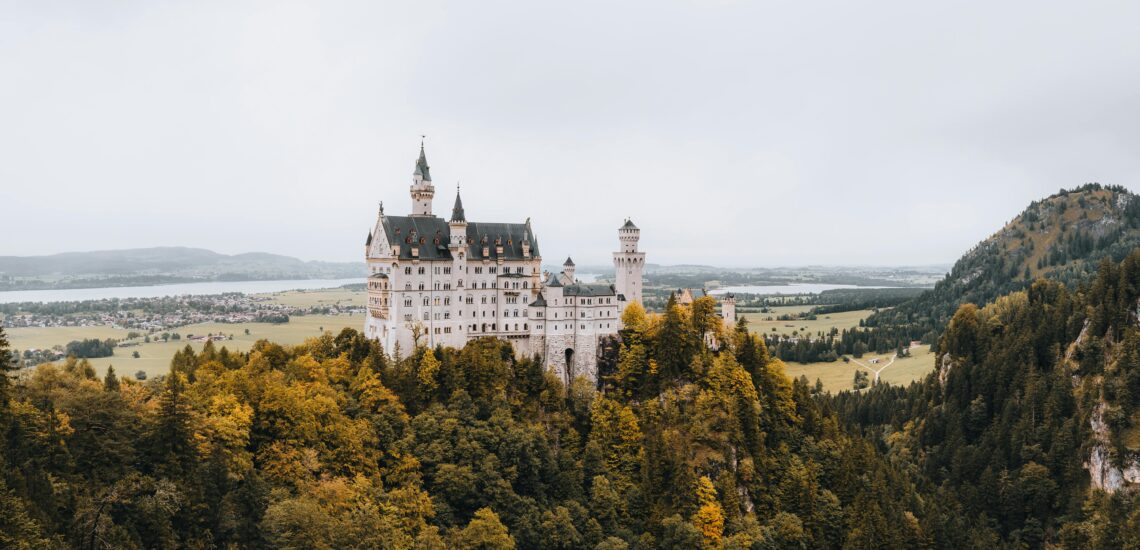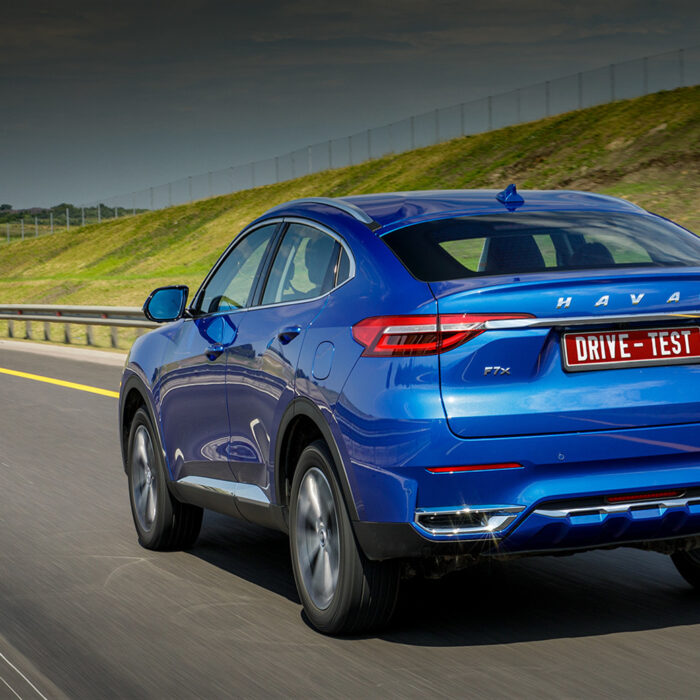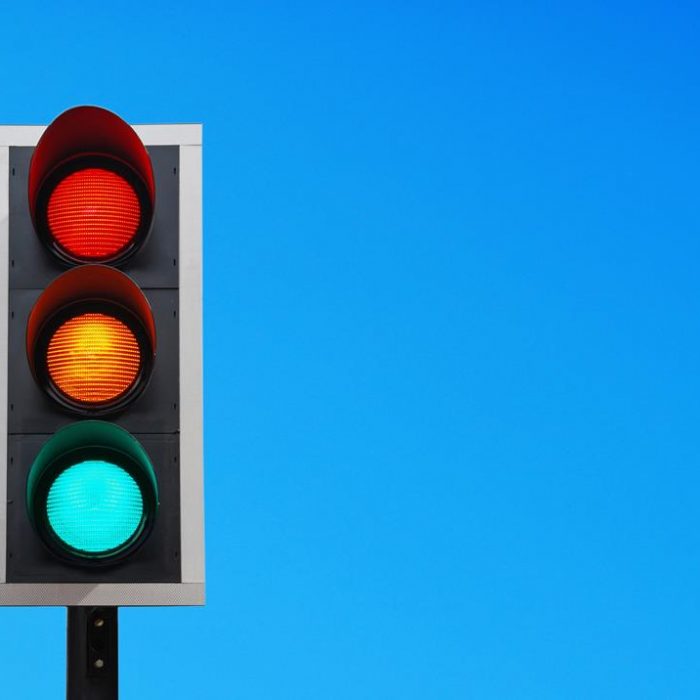30 Interesting Facts About Germany
Quick facts about Germany:
- Population: Over 83 million people.
- Capital: Berlin.
- Language: German.
- Economy: Largest in the EU, with a GDP of over €3.8 trillion.
- Automotive: Leading automobile manufacturer with over 5.6 million cars produced annually.
- Culture: Home to 44 UNESCO World Heritage Sites.
- Government: Federal republic with 16 states.
1 Fact: Germany is not very homogeneous
Germany exhibits notable regional economic disparities, with the western and southern regions being more economically developed than the eastern parts. This contrast is a legacy of the historical division between East and West Germany, a division underscored by the infamous Berlin Wall. Even after the reunification in 1990, economic differences persist. Western and southern regions boast advanced industries and higher GDP per capita, while the east grapples with a slower economic transformation. Berlin, the capital, mirrors this divide, with the western part flourishing while the eastern side continues to face economic challenges. Despite ongoing efforts to bridge these gaps, the economic landscape of Germany still reflects the historical legacies of division.
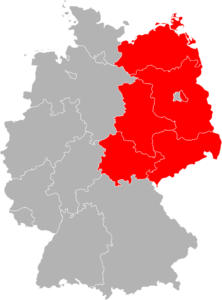 Marco Kaiser, CC BY-SA 2.0 DE, via Wikimedia Commons
Marco Kaiser, CC BY-SA 2.0 DE, via Wikimedia Commons2 Fact: Germany has many dialects of the language
Germany’s linguistic landscape is rich with diverse dialects, showcasing regional variations. For instance, the northern Low German or “Plattdeutsch” differs significantly from the southern Bavarian dialects like Austro-Bavarian. The western Rhineland dialects, including the distinctive Palatinate dialect, contribute to this linguistic mosaic. These dialectical differences, with unique vocabulary and pronunciation, reflect not just linguistic nuances but also the historical and cultural tapestry of the regions. Despite this diversity, Standard German remains the unifying language.
3 Fact: Germany lost in both world wars
Germany was on the losing side in both World War I and World War II. In World War I (1914-1918), Germany, along with the Central Powers, faced defeat, leading to significant political and economic consequences. In World War II (1939-1945), Germany, under Nazi rule led by Adolf Hitler, was defeated by the Allies, resulting in the occupation of the country and the division of Germany into East and West after the war.
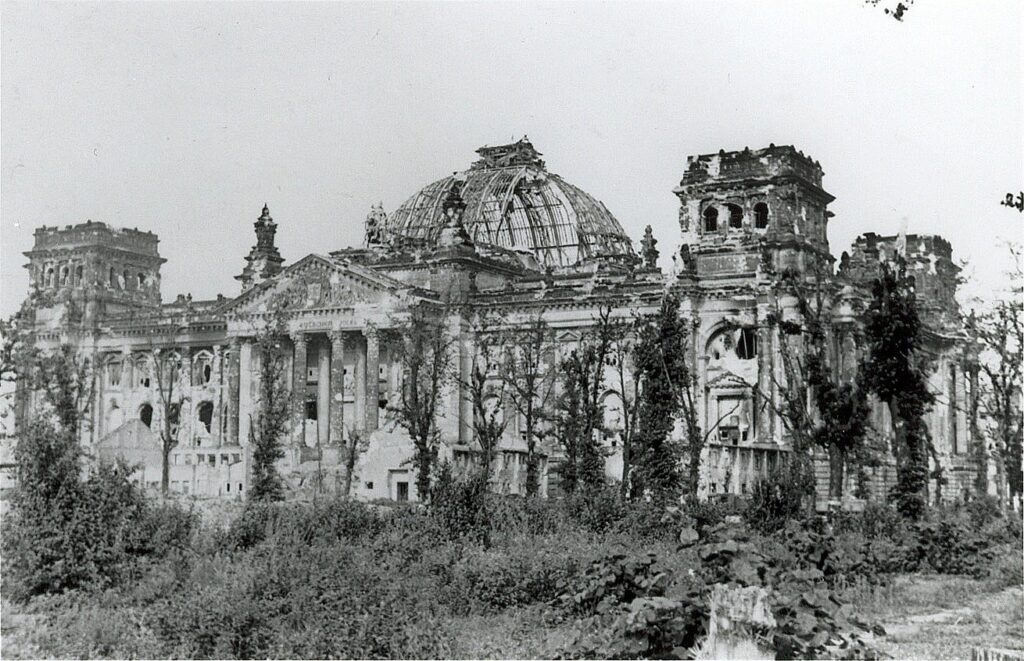 Larry, (CC BY-NC-ND 2.0)
Larry, (CC BY-NC-ND 2.0)4 Fact: Germany is famous for its autobahns
Germany is renowned for its autobahns, which are a network of high-speed highways known for their lack of general speed limits. The construction of the autobahns began during the Nazi era under the leadership of Adolf Hitler. The idea behind these highways was to create a modern and efficient road network that could facilitate the movement of military forces and improve overall transportation across the country. While the initial construction started in the 1930s, the autobahn system has since been expanded and modernized, becoming an iconic feature of Germany’s transportation infrastructure.
Many German autobahns do not have a speed limit. If you are planning a trip, check if you need an International Driver’s License in Germany to drive.
5 Fact: Germany is famous for the automobile industry
Few people know, but the automobile industry in Germany also developed during the Second World War. German automakers, including Volkswagen, BMW, Mercedes-Benz, and Porsche, were involved in producing military vehicles during World War II. For example, Volkswagen manufactured tanks like the Tiger I and Tiger II. BMW and Mercedes-Benz also contributed to the production of military vehicles, with the Panther tank from companies like Daimler-Benz becoming widely used during the war. Porsche was involved in designing tanks, including the prototype for the Porsche Tiger.
After the war, the automobile industry, after some regression, returned to the production of civilian cars and succeeded. Germany is a major player in the global automotive industry. German automakers produce millions of vehicles annually. For example, in 2022, Germany manufactured 3677820 passenger cars, solidifying its position as one of the leading car-producing countries in the world. The country’s automotive prowess extends beyond its borders, with German car brands maintaining a strong presence and influencing the global market.
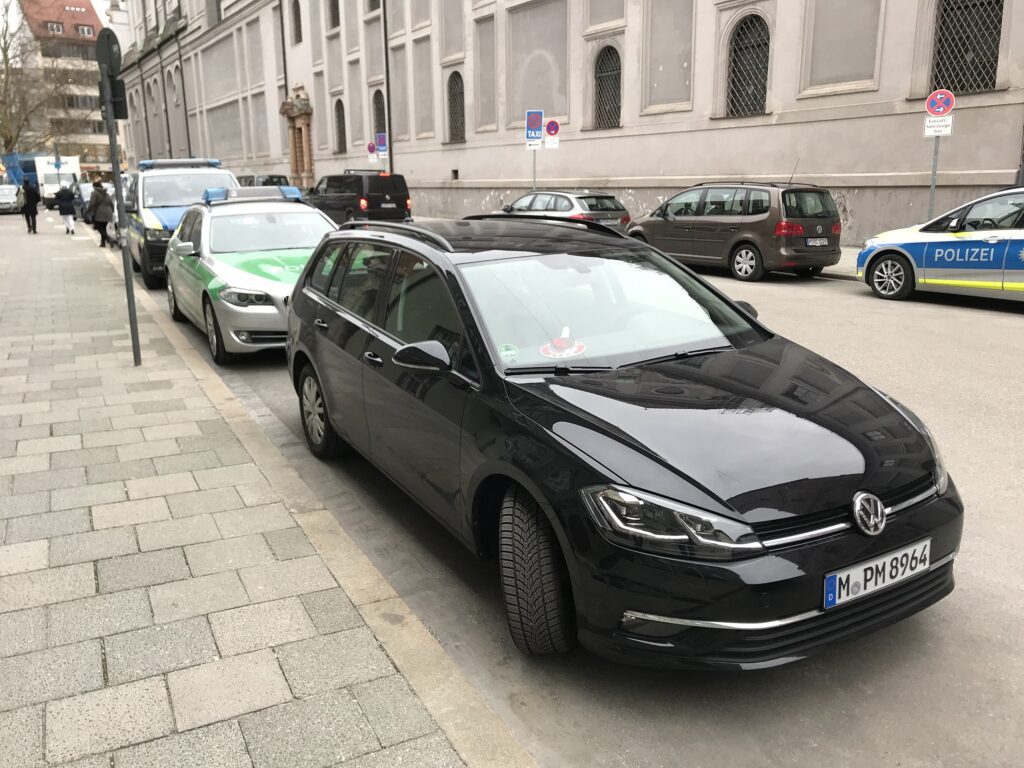 Frank Schuengel, CC BY-SA 4.0, via Wikimedia Commons
Frank Schuengel, CC BY-SA 4.0, via Wikimedia Commons6 Fact: There are over 20,000 castles in Germany
Germany is home to over 20,000 castles, with some well-preserved and others in ruins. Among the must-visit are:
- Neuschwanstein Castle: An iconic fairytale-like castle in the Bavarian Alps.
- Burg Eltz: A medieval gem perched above the Moselle River.
- Heidelberg Castle: Overlooking Heidelberg, offering a mix of medieval and Renaissance architecture.
- Wartburg Castle: Associated with Martin Luther’s work, located near Eisenach.
While some are well-maintained, the ruins also contribute to Germany’s rich historical and architectural tapestry.
7 Fact: Germany hosts Oktoberfest, the biggest beer festival in the world
Germany is renowned for hosting Oktoberfest, which is considered the largest beer festival globally. This annual event takes place in Munich and typically starts in late September, running through the first weekend in October. Oktoberfest attracts millions of visitors from around the world who gather to enjoy a vast array of traditional Bavarian beers, delicious food, and lively music. About 7.2 million people attended the festival in 2023! The festival has become a significant cultural celebration, showcasing German traditions and fostering a festive atmosphere that extends well beyond the beer tents.
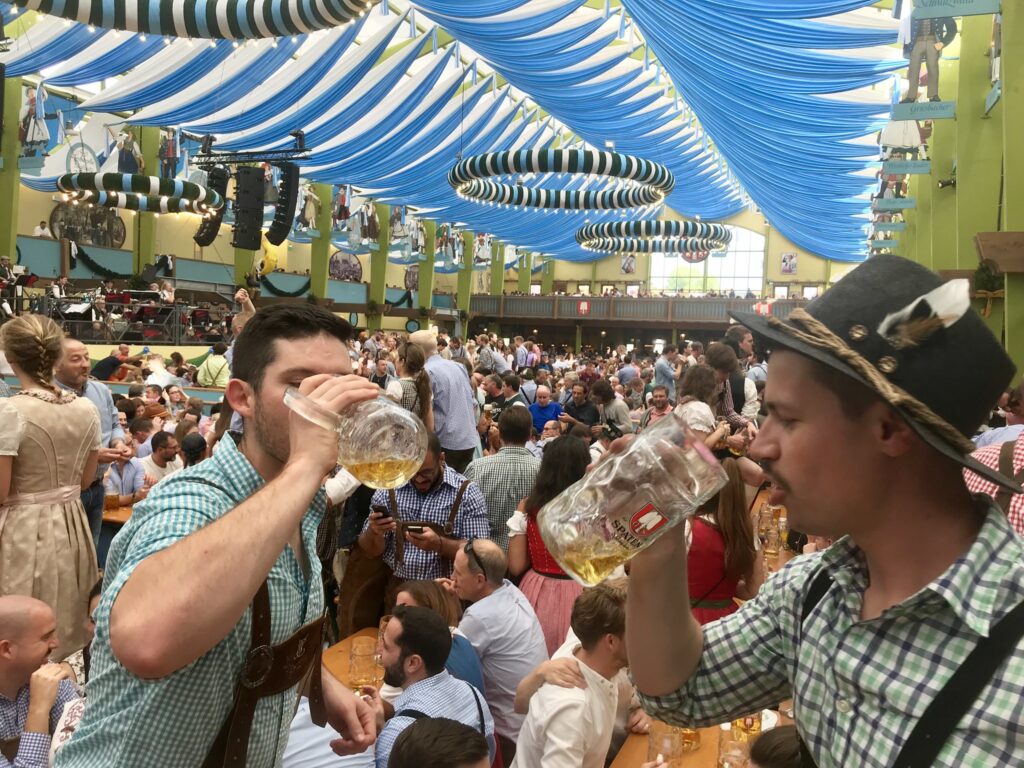 – Adam Reeder –, (CC BY-NC 2.0)
– Adam Reeder –, (CC BY-NC 2.0)8 Fact: The love of beer explains its variety
Germany has a deep-rooted beer culture, and the country is celebrated for its diverse and high-quality beer offerings. While the exact number of beer types can vary, Germany is home to an extensive selection of approximately 7,000 different types of beer. This diversity reflects the country’s rich brewing traditions, with each region often having its unique beer styles, flavors, and brewing methods. Whether it’s the famous wheat beers of Bavaria, the crisp lagers of Northern Germany, or the distinct ales of various regions, Germany’s beer culture is a source of pride and a significant part of its culinary heritage.
9 Fact: There are also more than 1,200 different kinds of sausages in Germany
Germany is renowned for its diverse and delicious sausage varieties. The country boasts an impressive culinary heritage with more than 1,200 different kinds of sausages. These sausages, known as “Wurst” in German, vary not only in taste but also in texture, size, and regional preparation methods. From the popular Bratwurst and Weisswurst to regional specialties like Thuringian Rostbratwurst and Currywurst, each type of sausage reflects the culinary traditions of specific German regions. Sausages play a significant role in German cuisine, and enjoying a “Wurst” is a quintessential experience for both locals and visitors.
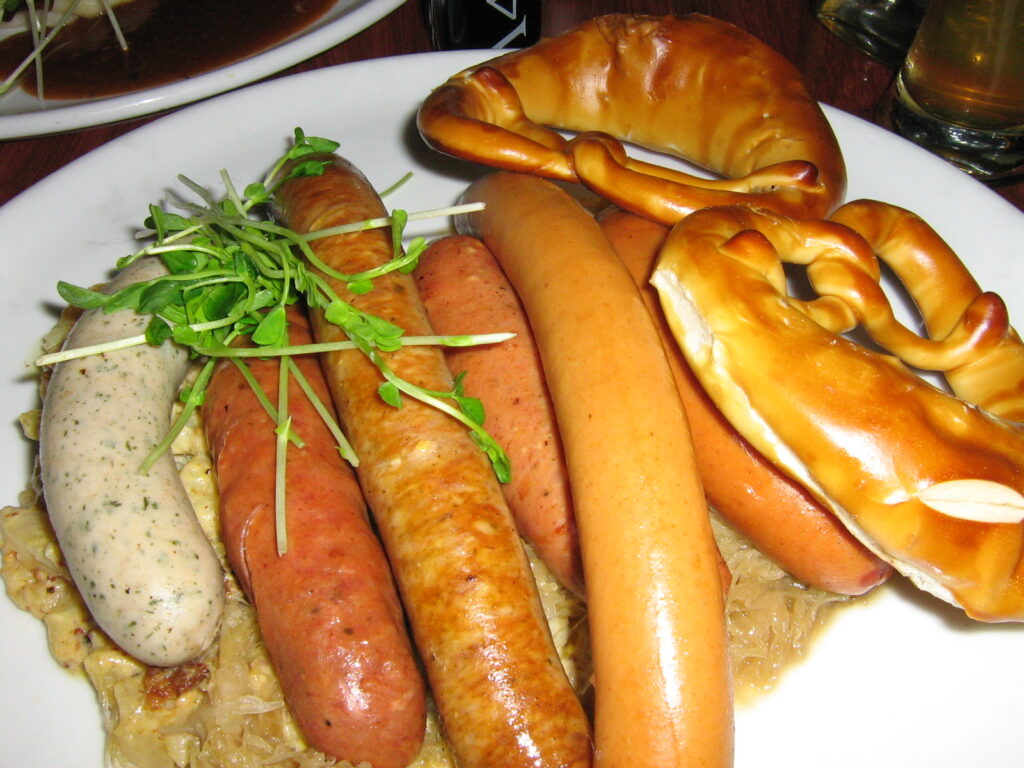 -l.i.l.l.i.a.n-, (CC BY-SA 2.0)
-l.i.l.l.i.a.n-, (CC BY-SA 2.0)10 Fact: Reform of the Catholic Church began in Germany
The reform of the Catholic Church, known as the Protestant Reformation, began in Germany with Martin Luther’s posting of the Ninety-Five Theses in 1517. This act marked the start of a movement challenging certain practices of the Catholic Church and eventually led to the emergence of Protestantism. The consequences of the Reformation were profound, including the splintering of Christianity into Catholicism and Protestantism, the establishment of new Protestant denominations, and significant social, political, and cultural changes across Europe. The Reformation had a lasting impact on religious diversity, individual autonomy in matters of faith, and the relationship between church and state.
11 Fact: Germany had Free Cities and the practice spread to Europe
In medieval Germany, the Free City of Magdeburg pioneered the Magdeburg Law in the 13th century. This legal code, a cornerstone of urban governance, granted citizens various rights and privileges. Its influence spread rapidly, with over 600 towns adopting the Magdeburg Law by the 15th century. This legal framework became a template for municipal governance, impacting not only Germany but also other European regions influenced by German settlement. The Magdeburg Law, with its blend of property rights and trade regulations, left an enduring legacy, shaping the legal foundations of numerous cities and contributing to the evolution of civic institutions in medieval and early modern Europe.
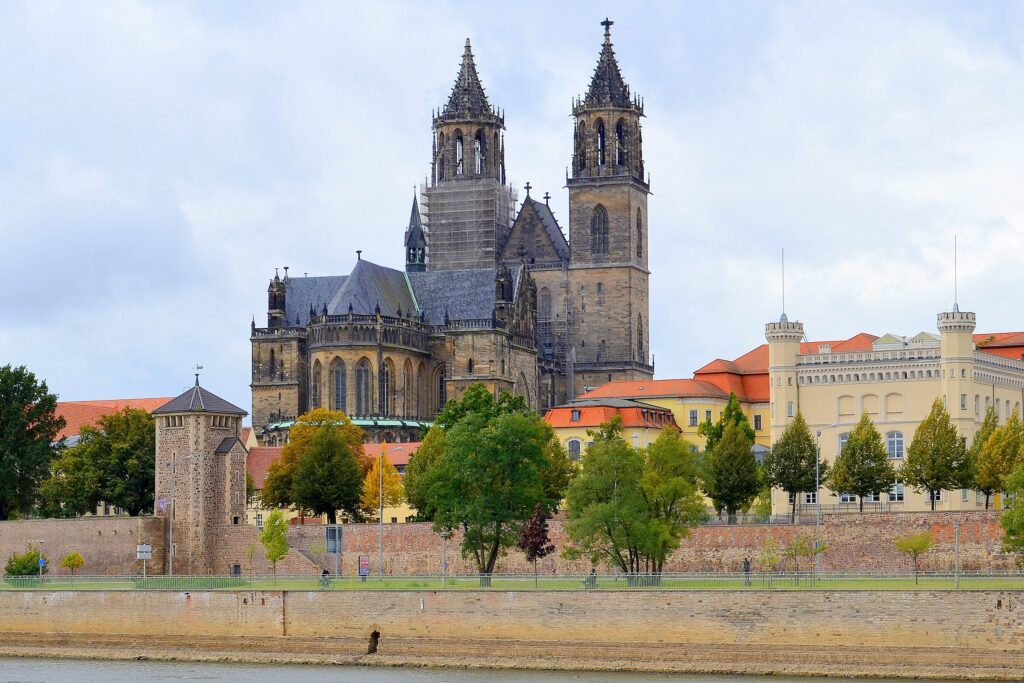 RomkeHoekstra, CC BY-SA 4.0, via Wikimedia Commons
RomkeHoekstra, CC BY-SA 4.0, via Wikimedia Commons12 Fact: In Germany, 1/3 of the country is forests
In Germany, approximately one-third of the country’s land area is covered by forests. This translates to about 11.4 million hectares of forested land. Germany has a long-standing tradition of sustainable forest management, and its wooded landscapes contribute significantly to biodiversity, climate regulation, and various ecological functions. These forests are not only valued for their environmental role but also play a crucial role in the country’s cultural and recreational activities, providing spaces for outdoor recreation, wildlife habitat, and timber production.
13 Fact: Germany is actively developing renewable energy in Germany
Germany is actively developing renewable energy and in 2023 about 55% of the country’s electricity is generated from renewable sources.The country has been a global leader in wind energy, ranking fourth in the world for installed capacity. Additionally, Germany has made significant investments in solar power, consistently ranking among the top countries in solar capacity. The Energiewende initiative aims to transition to sustainable energy, contributing to Germany’s position as a leading advocate for renewable energy on the international stage.
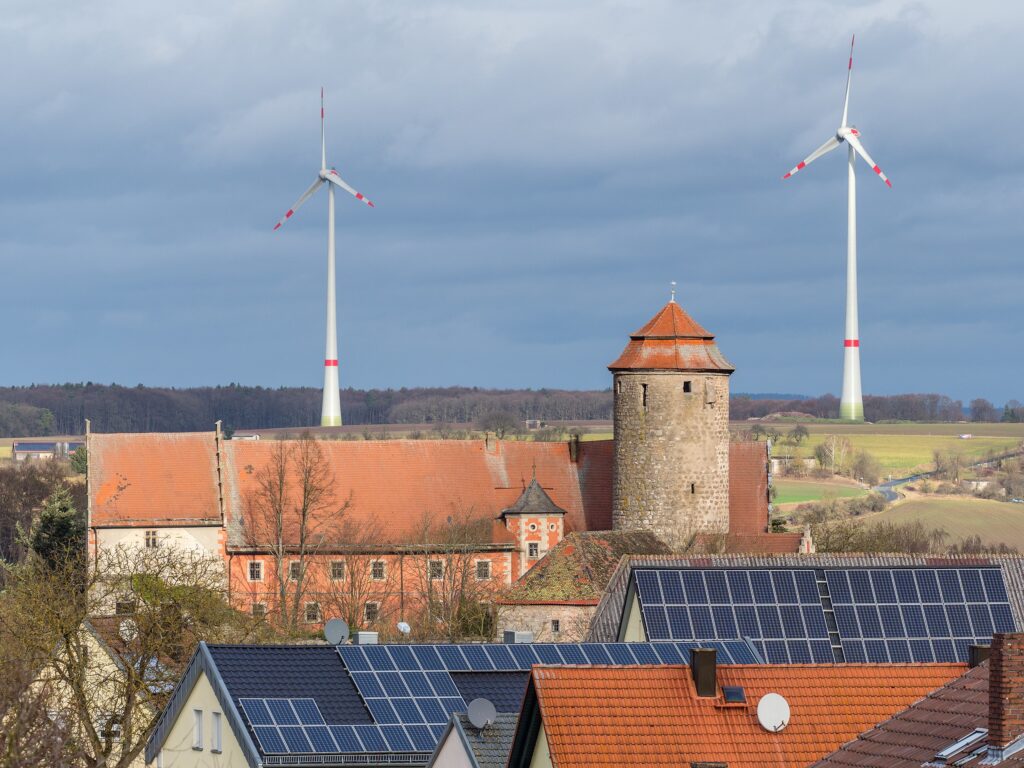 Reinhold Möller, CC BY-SA 4.0, via Wikimedia Commons
Reinhold Möller, CC BY-SA 4.0, via Wikimedia Commons14 Fact: The hamburger is named after a town in Germany
The hamburger is named after a town in Germany called Hamburg. The food’s name is derived from the practice of preparing and serving ground meat in the style of Hamburg, which involved minced beef mixed with onions and seasonings. German immigrants introduced this culinary tradition to the United States in the 19th century. Over time, the dish evolved, eventually leading to the creation of what is now known as the hamburger, a popular and iconic American food.
15 Fact: The first printed book was in Germany
First printed book using movable-type printing technology was produced in Germany. Johannes Gutenberg, a German inventor, is credited with introducing the printing press with movable metal type around 1440. The Gutenberg Bible, also known as the 42-line Bible, was completed around 1455 in Mainz, Germany. This marked a significant milestone in the history of printing and publishing, revolutionizing the way books were produced and making information more widely accessible. The Gutenberg Bible is considered one of the earliest major books printed using movable type and is a landmark in the history of printing.
 Lawrence OP, (CC BY-NC-ND 2.0)
Lawrence OP, (CC BY-NC-ND 2.0)16 Fact: Cologne Cathedral took 632 years to build
Cologne Cathedral (Kölner Dom) in Germany is a remarkable architectural achievement that took an extended period to complete. Construction of the cathedral began in 1248, but due to various interruptions, including financial constraints, political challenges, and the Black Death, it was not officially completed until 1880. As a result, the Cologne Cathedral took approximately 632 years to build. This Gothic masterpiece is not only a symbol of German craftsmanship but also one of the largest cathedrals in Europe, attracting millions of visitors annually.
17 Fact: Germany has more zoos than anywhere else
Germany has more zoos than anywhere else, with over 400 zoological gardens and wildlife facilities across the country. This extensive network caters to a diverse range of animal species, reflecting Germany’s commitment to wildlife conservation and education. Among these, some of the most visited zoos include the Berlin Zoological Garden, the Leipzig Zoological Garden, and the Hagenbeck Zoo in Hamburg. These popular destinations not only provide a home for a wide variety of animals but also offer engaging educational programs, making Germany a prominent hub for both local and international visitors interested in wildlife experiences.
 SpreePiX – Berlin, (CC BY-SA 2.0)
SpreePiX – Berlin, (CC BY-SA 2.0)18 Fact: Germany is slowly becoming an immigrant country
20.2 million people in Germany either moved to or were born in Germany to 2 migrant parents. This is about 23% of the population. The robust German economy, often considered the strongest in the European Union, and political stability contribute to its appeal for immigrants seeking opportunities and a higher quality of life. Government policies aimed at addressing demographic challenges have facilitated this shift, emphasizing Germany’s role as an increasingly diverse and immigrant-friendly nation
19 Fact: Berlin has more bridges than Venice
Berlin is known for its intricate network of waterways, with the River Spree and numerous canals crisscrossing the city. Berlin has over 900 bridges, making it a city with more bridges than Venice. This abundance of bridges contributes to the unique charm of Berlin’s landscape and facilitates connectivity across the city’s various neighborhoods.
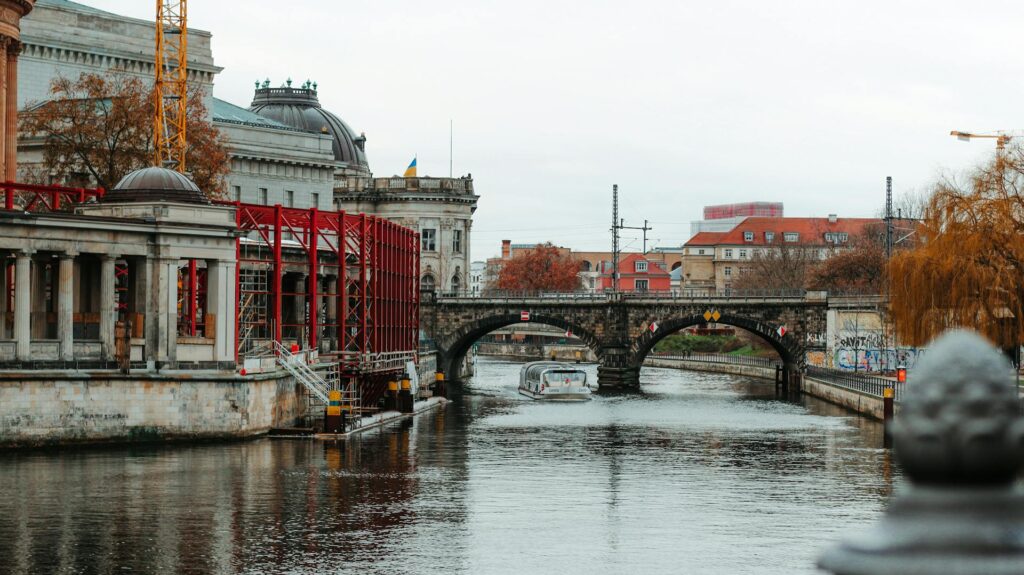
20 Fact: German language allows you to make the longest words
German is known for its ability to create long compound words, allowing for the formation of extensive terms, particularly in technical and scientific contexts. An example is the word “Rindfleischetikettierungsüberwachungsaufgabenübertragungsgesetz,” a legal term related to beef labeling. This feature showcases German’s capacity for forming complex compound nouns.
21 Fact: The Christmas tree has begun to be put up in Germany
The tradition of putting up Christmas trees in Germany has begun. As part of the festive season, many households and public spaces are decorating Christmas trees, a beloved custom deeply rooted in German Christmas traditions. The beautifully adorned trees are a symbol of the holiday spirit and are often accompanied by festive ornaments and lights. This tradition holds a special place in German culture, marking the beginning of the joyful Christmas celebrations.
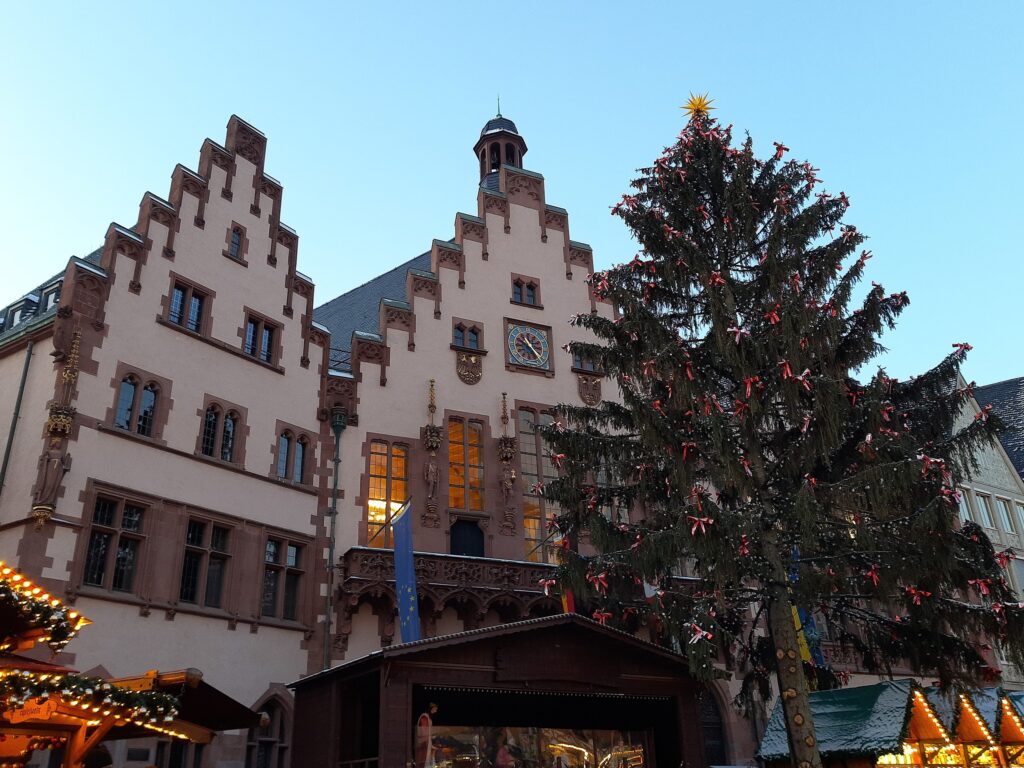 Gerda Arendt, CC BY-SA 4.0, via Wikimedia Commons
Gerda Arendt, CC BY-SA 4.0, via Wikimedia Commons22 Fact: German schools have a 6 point grading system
German schools use a 6-point grading system, ranging from “Sehr Gut” (Very Good) to “Ungenügend” (Insufficient), providing a comprehensive evaluation of student performance.
23 Fact: Germany boasts the third highest number of people to have won the Nobel Prize
Germany has produced more than 130 Nobel laureates, placing it among the top countries with the highest number of Nobel Prize winners. This includes individuals recognized in physics, chemistry, medicine, literature, and peace.
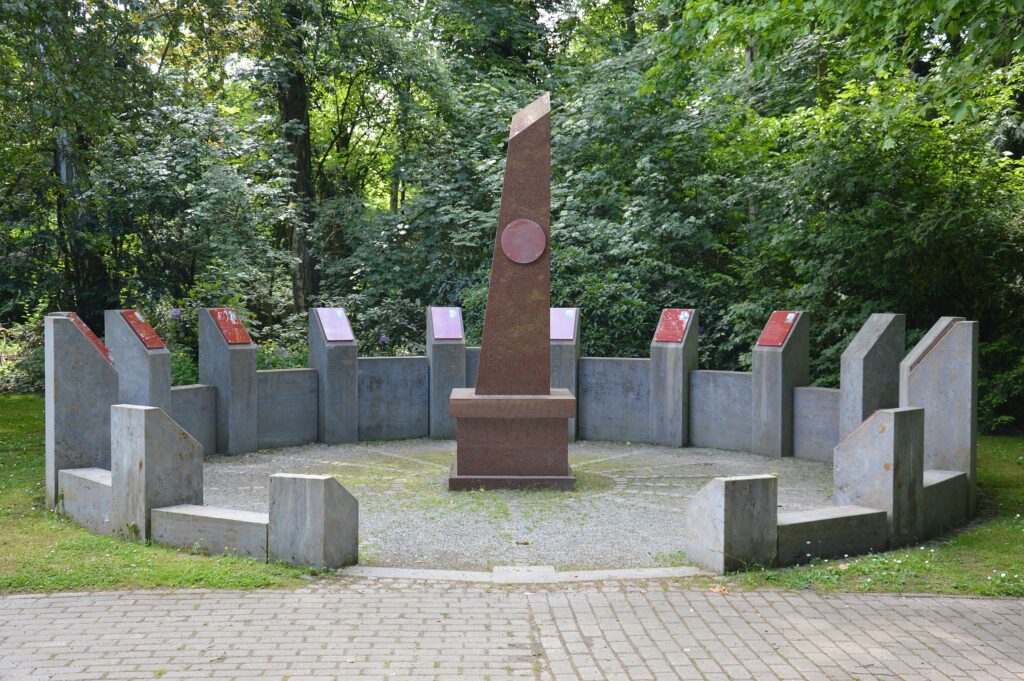 Illustratedjc, CC BY-SA 4.0, via Wikimedia Commons
Illustratedjc, CC BY-SA 4.0, via Wikimedia Commons24 Fact: Germany invented a lot of things for the first time
Germany has made notable contributions to global innovation, including the development of insulin, the invention of the gasoline engine by Karl Benz, the creation of the first mechanical calculator by Thomas de Colmar, and the synthesis of aspirin by Felix Hoffmann. These inventions have had a lasting impact worldwide.
25 Fact: Germany is the first to adopt daylight saving time
Germany was the first country to implement daylight saving time (DST) on April 30, 1916, during World War I. DST was introduced as an energy-saving measure, aiming to make more efficient use of daylight and reduce the reliance on artificial lighting. This historical decision set the precedent for the adoption of DST in various countries worldwide.
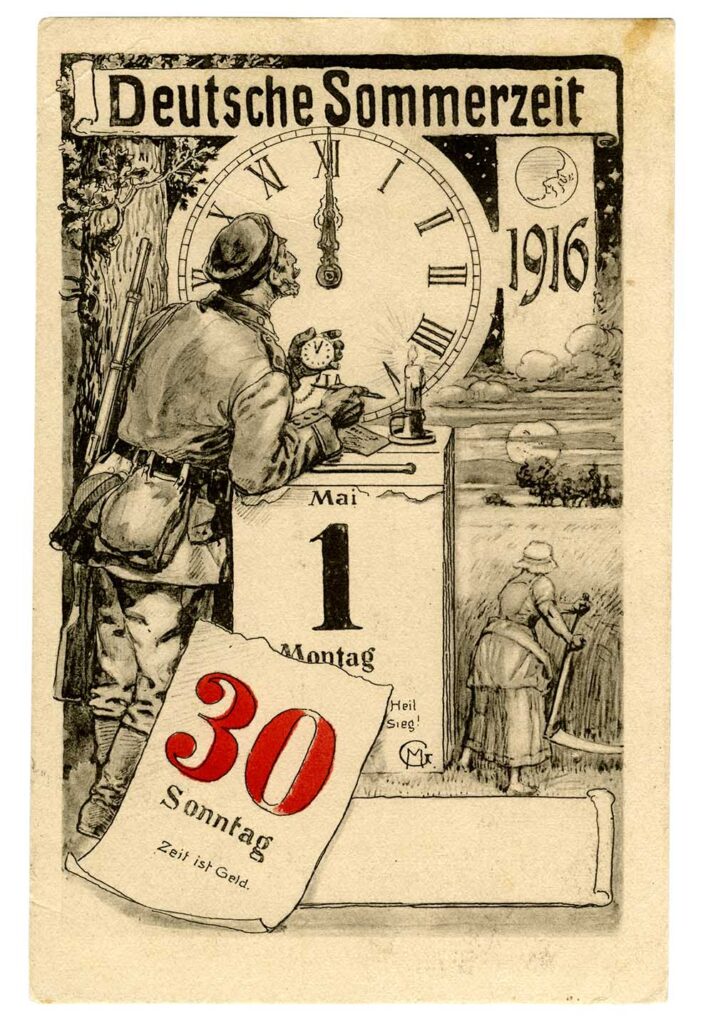 Grafj, CC BY-SA 4.0, via Wikimedia Commons
Grafj, CC BY-SA 4.0, via Wikimedia Commons26 Fact: Germany’s public transportation is one of the most schedule-accurate in the world
The country’s extensive network of trains, buses, trams, and other public transit options is known for its reliability and adherence to schedules. German cities and regions prioritize well-coordinated and timely public transportation services, making it a convenient and dependable mode of travel for residents and visitors alike.
27 Fact: Germany has the narrowest street in the world
Spreuerhofstraße in Reutlingen, Germany, holds the Guinness World Record for one of the narrowest streets globally. At its narrowest point, it measures approximately 31 centimeters, making it a unique and exceptionally narrow passage.
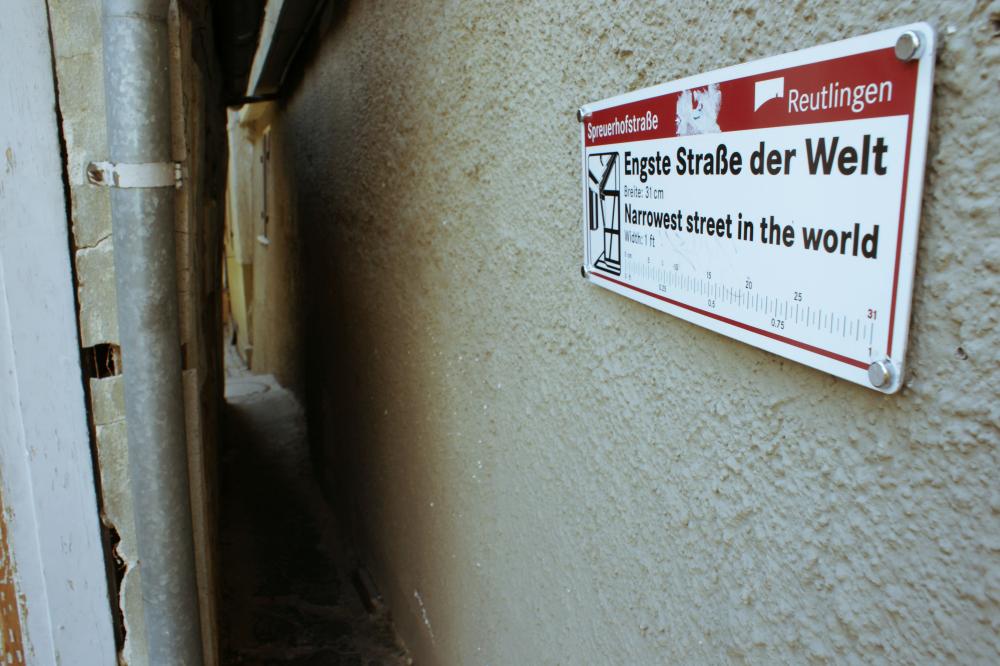 Jonathan Giroux, (CC BY-NC-SA 2.0)
Jonathan Giroux, (CC BY-NC-SA 2.0)28 Fact: You need a permit and training to fish
In Germany, fishing is regulated, and individuals typically need a fishing permit, known as an “Angelschein,” to engage in recreational fishing. To obtain this permit, individuals often need to undergo training and pass an exam to demonstrate their understanding of fishing regulations, environmental conservation, and fish species. The training ensures that anglers have the necessary knowledge to engage in responsible and sustainable fishing practices. Additionally, specific regulations may vary between regions, so it’s important for anglers to be aware of and adhere to local fishing laws.
29 Fact: Public order control has been developed in Germany
In Germany, citizens often report various violations, including those involving neighbors, to law enforcement authorities. This can encompass complaints related to public order, noise disturbances, or other issues that require intervention from the police or relevant authorities. The country has mechanisms for citizens to submit complaints, and the collaboration between the public and law enforcement contributes to maintaining public order and safety.
30 Fact: In Germany, most packaging like bottles and cans can be returned to the store for a refund
 Donald_Trung, CC BY-SA 4.0, via Wikimedia Commons
Donald_Trung, CC BY-SA 4.0, via Wikimedia CommonsIn Germany, there is a well-established system for the return of beverage containers such as bottles and cans. Known as the “pfand” system, it encourages recycling by offering a deposit refund for returned packaging. Consumers pay a small deposit when purchasing bottled or canned beverages, and they can later return the empty containers to designated machines in stores to receive a refund. This initiative not only promotes recycling but also helps keep public spaces clean, as individuals are incentivized to return their used containers for a financial reimbursement.

